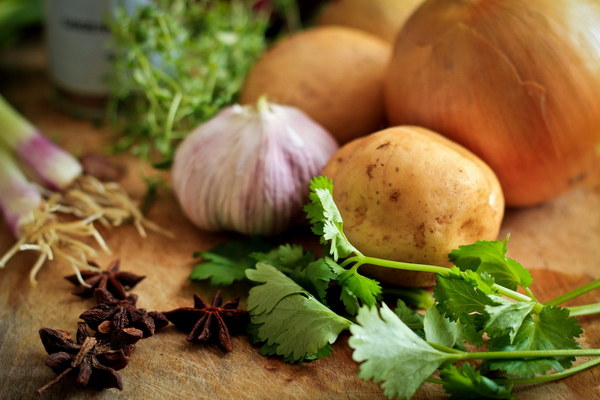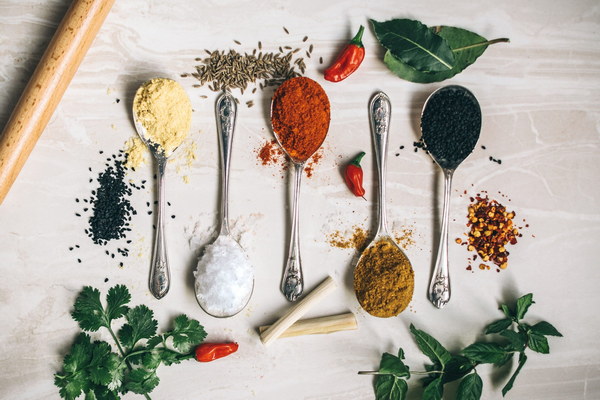The Dual Impact of Garlic on Liver Health Beneficial and Harmful Aspects Explored
Introduction:
Garlic, a widely-consumed spice, has long been revered for its numerous health benefits. Among them, the belief that consuming garlic can aid in liver health is prevalent. However, recent studies suggest that while garlic can indeed benefit the liver, it may also pose certain risks. This article delves into the dual impact of garlic on liver health, highlighting both its beneficial and harmful aspects.
Beneficial Aspects of Garlic for Liver Health:
1. Antioxidant Properties:
Garlic is rich in antioxidants, which help combat oxidative stress in the liver. This stress can damage liver cells and contribute to liver diseases such as hepatitis and cirrhosis. Antioxidants in garlic can neutralize harmful free radicals and protect liver cells from damage.
2. Detoxification:
Garlic has been found to enhance the liver's detoxification processes, aiding in the elimination of harmful substances from the body. This can help reduce the risk of liver diseases and improve overall liver function.
3. Inflammation Reduction:
Inflammation is a significant factor in the progression of liver diseases. Garlic has anti-inflammatory properties that can help reduce inflammation in the liver, thereby preventing or slowing down the progression of conditions such as non-alcoholic fatty liver disease (NAFLD) and liver cancer.
4. Blood Sugar Control:
Maintaining healthy blood sugar levels is crucial for liver health. Garlic has been shown to improve insulin sensitivity and regulate blood sugar levels, which can help prevent the development of type 2 diabetes and its associated liver complications.
Harmful Aspects of Garlic for Liver Health:
1. Garlic Allergies:
Some individuals may be allergic to garlic, experiencing adverse reactions such as hives, itching, and swelling. In rare cases, severe allergic reactions may lead to anaphylaxis, a life-threatening condition.
2. Interaction with Medications:
Garlic can interact with certain medications, potentially leading to harmful effects on the liver. For instance, garlic may interfere with blood-thinning medications, anticoagulants, and certain cancer treatments, increasing the risk of bleeding or liver damage.

3. Garlic Toxicity:
Consuming excessive amounts of garlic can lead to garlic toxicity, a condition characterized by symptoms such as garlic breath, body odor, and gastrointestinal disturbances. In rare cases, garlic toxicity may cause liver damage or failure.
4. Garlic and Liver Disease:
While garlic has numerous health benefits, it is essential to note that it may not be suitable for everyone, especially those with pre-existing liver conditions. In some cases, garlic may exacerbate liver damage or hinder the effectiveness of liver treatments.
Conclusion:
Garlic holds significant promise for promoting liver health, thanks to its antioxidant, detoxification, anti-inflammatory, and blood sugar-regulating properties. However, it is crucial to be aware of the potential risks associated with garlic consumption, including allergies, medication interactions, garlic toxicity, and its potential exacerbation of liver disease in certain individuals. As with any dietary supplement or treatment, it is advisable to consult a healthcare professional before incorporating garlic into your liver health regimen.









